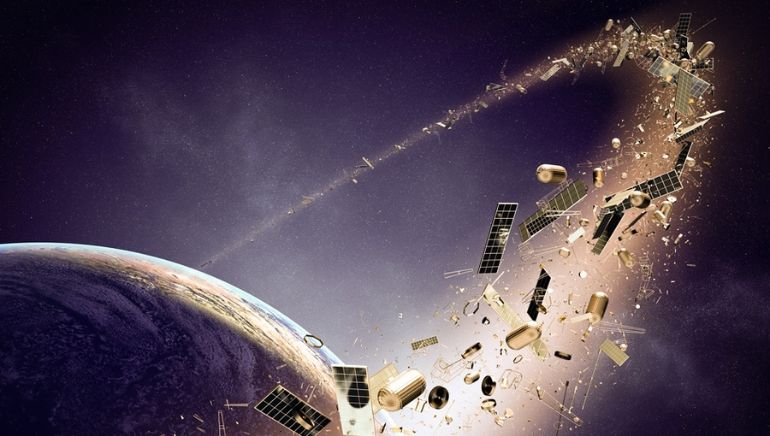The US has imposed its first-ever fine of $150,000 on the TV company, Dish, for improper satellite disposal. The Federal Communications Commission (FCC), responsible for authorising space-based telecom services, handed down the penalty on October 2. Dish had failed to correctly deorbit its satellite, EchoStar-7, which had been in orbit since 2002.
As the geostationary satellite reached the end of its operational lifespan, Dish deviated from the agreed-upon altitude, raising concerns about orbital debris. In 2012, Dish had committed to raising the satellite to an altitude of 300 kilometers (190 miles) above its operational arc. However, due to dwindling fuel reserves, the satellite was retired at an altitude slightly above 120 kilometers above the original arc.
The settlement includes Dish acknowledging liability, agreeing to adhere to a compliance plan, and paying the $150,000 penalty. This move marks a landmark moment in the FCC’s efforts to address space debris issues as it intensifies its satellite policy initiatives.
Meanwhile, the US aviation regulator, the FAA, has expressed its intention to mitigate space debris by mandating that private companies dispose of upper stages of rocket launch vehicles. This could involve methods such as returning them to Earth’s atmosphere or relocating them to less congested ‘graveyard orbits.’
The European Space Agency estimates that there are approximately one million pieces of debris larger than a centimeter in Earth’s orbit, posing a threat to spacecraft. These space debris incidents have already caused problems, from a near-miss involving a Chinese satellite in January to a five-millimeter hole punctured in the robotic arm of the International Space Station in 2021.















